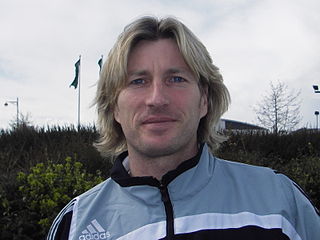A Quote by Plutarch
I, for my own part, had much rather people should say of me that there neither is nor ever was such a man as Plutarch, than that they should say, "Plutarch is an unsteady, fickle, froward, vindictive, and touchy fellow.
Related Quotes
People like to say that Plutarch's is a really "personal" voice, but in truth Plutarch tells us very little about his life. His voice is personable but never personal. It feels intimate because he's addressing the world as we experience it, at this level, a human level, rather than way up here where very few of us live.
Acts themselves alone are history, and these are neither the exclusive property of Hume, Gibbon nor Voltaire, Echard, Rapin, Plutarch, nor Herodotus. Tell me the Acts, O historian, and leave me to reason upon them as I please; away with your reasoning and your rubbish. All that is not action is not worth reading.
The historian should be fearless and incorruptible; a man of independence, loving frankness and truth; one who, as the poets says, calls a fig a fig and a spade a spade. He should yield to neither hatred nor affection, not should be unsparing and unpitying. He should be neither shy nor deprecating, but an impartial judge, giving each side all it deserves but no more. He should know in his writing no country and no city; he should bow to no authority and acknowledge no king. He should never consider what this or that man will think, but should state the facts as they really occurred.
These fellow-mortals, every one, must be accepted as they are: you can neither straighten their noses, nor brighten their wit, nor rectify their dispositions; and it is these people-amongst whom your life is passed-that it is needful you should tolerate, pity, and love: it is these more or less ugly, stupid, inconsistent people whose movements of goodness you should be able to admire-for whom you should cherish all possible hopes, all possible patience.
Had I no eyes but ears, my ears would love. That inward beauty and invisible; Or were I deaf, thy outward parts would move each part in me that were but sensible: Though neither eyes nor ears, to hear nor see, yet should I be in love by touching thee. 'Say, that the sense of feeling were bereft me, and that I could not see, nor hear, nor touch, and nothing but the very smell were left me, yet would my love to thee be still as much; for from the stillitory of thy face excelling comes breath perfum'd that breedeth love by smelling.
The preacher who is concerned with gaining a reputation, rising in his profession, is always in bondage. The itch for bigness is a dangerous thing. It has made a castaway of many a man whom God once richly blessed. A man should desire to be neither larger nor smaller than pleases God. Better than that, he should not bother at all about how large or how small but rather how faithful he shall be.






































